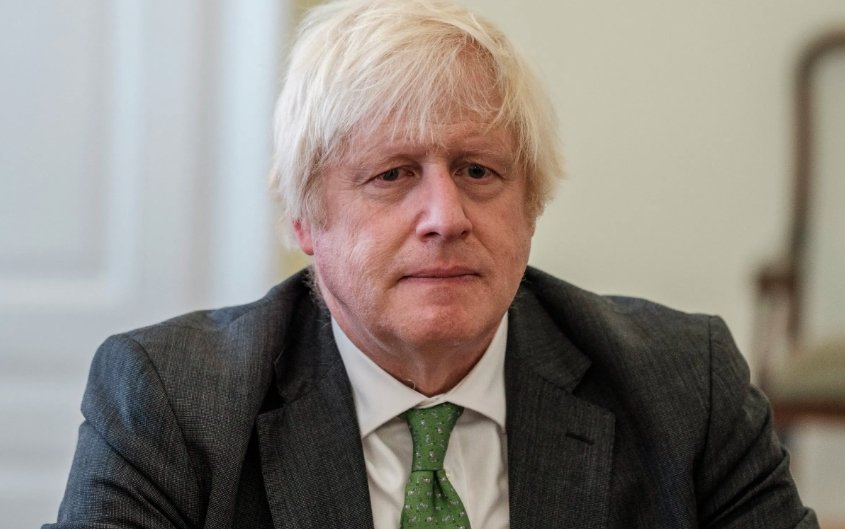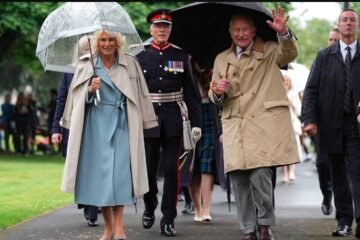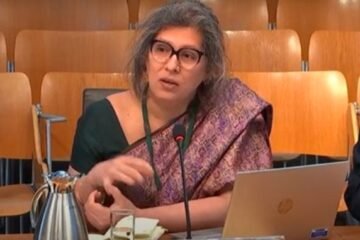Former UK Prime Minister Boris Johnson has been accused of being insensitive, irresponsible and incompetent after shocking details emerged from the Covid inquiry. The inquiry, which is investigating the government’s handling of the pandemic, has revealed that Johnson made controversial remarks about the elderly, changed his mind frequently about lockdown measures, and ignored scientific advice.
Johnson’s attitude towards the elderly questioned
One of the most disturbing revelations from the inquiry was that Johnson allegedly asked why the economy was being destroyed “for people who will die anyway soon” in the days before the country went into lockdown in March 2020. This was according to a note read from the diary of a former private secretary, Imran Shafi, who appeared as a witness on Tuesday.
Shafi also confirmed that England’s then-chief medical officer, Chris Whitty, gave a restaurant discount scheme the nickname “Eat Out To Help Out The Virus” because of its potential to spread infections.
Another witness, Sir Patrick Vallance, who was the government’s chief scientific adviser during Covid-19, wrote in his diaries that Johnson was “obsessed with older people accepting their fate and letting the young get on with life and the economy going” in August 2020. He also quoted Johnson as saying that he was not sure if he disagreed with Tory MPs who thought that Covid was “just Nature’s way of dealing with old people” in December 2020.

These statements have sparked outrage among the public, especially the families of the Covid victims, who have demanded an apology from Johnson. However, Johnson has refused to comment on the evidence, saying that he is “co-operating fully” with the inquiry.
Johnson’s indecision over lockdown measures exposed
The inquiry also heard that Johnson was torn between imposing lockdown measures to contain the virus and keeping the economy open to appease his party and the media. Lee Cain, who was Johnson’s communications director in No 10, said that the then-PM was indecisive over whether or not to have a circuit-breaker lockdown in September 2020 because it was “very much against what’s in his political DNA”.
Cain said that Johnson felt that the public opinion and scientific evidence were in favour of caution and suppression, while the media opinion and the “rump of the Tory Party” were pushing him hard in the opposite direction. He said that Johnson relied on polling to make his decisions, and that he changed his mind constantly, leading to confusion and frustration among his advisers and officials.
The inquiry also saw messages between Dominic Cummings, Cabinet Secretary Simon Case and Cain, in which Case, the most senior civil servant, accused Johnson of being unable to lead and support him, and said that the government looked like a “tragic joke” in September 2020.
Johnson’s disregard for scientific advice revealed
The inquiry also revealed that Johnson ignored or dismissed the scientific advice that he received from his advisers and experts. Vallance wrote in his diaries that Johnson often questioned the validity of the data and models that were presented to him, and that he was reluctant to follow the recommendations of the Scientific Advisory Group for Emergencies (SAGE).
Vallance also wrote that Johnson was influenced by “nonsense” from external sources, such as the Great Barrington Declaration, which advocated for herd immunity through natural infection. He said that Johnson was “seduced” by the idea of a “moonshot” mass testing programme, which turned out to be a “disaster” and a “waste of money”.
The inquiry also heard that Johnson was dismissive of the advice from the World Health Organization (WHO), which urged countries to “test, test, test” in March 2020. Shafi said that Johnson said that the WHO was “a bunch of idiots” and that testing was “a waste of time”.
The inquiry is expected to continue for several months, and will examine the political governance, the health and social care system, and the economic and social impact of the pandemic. The inquiry’s chair, Sir John Chilcot, has said that the purpose is to learn lessons and not to apportion blame or find guilt.


















